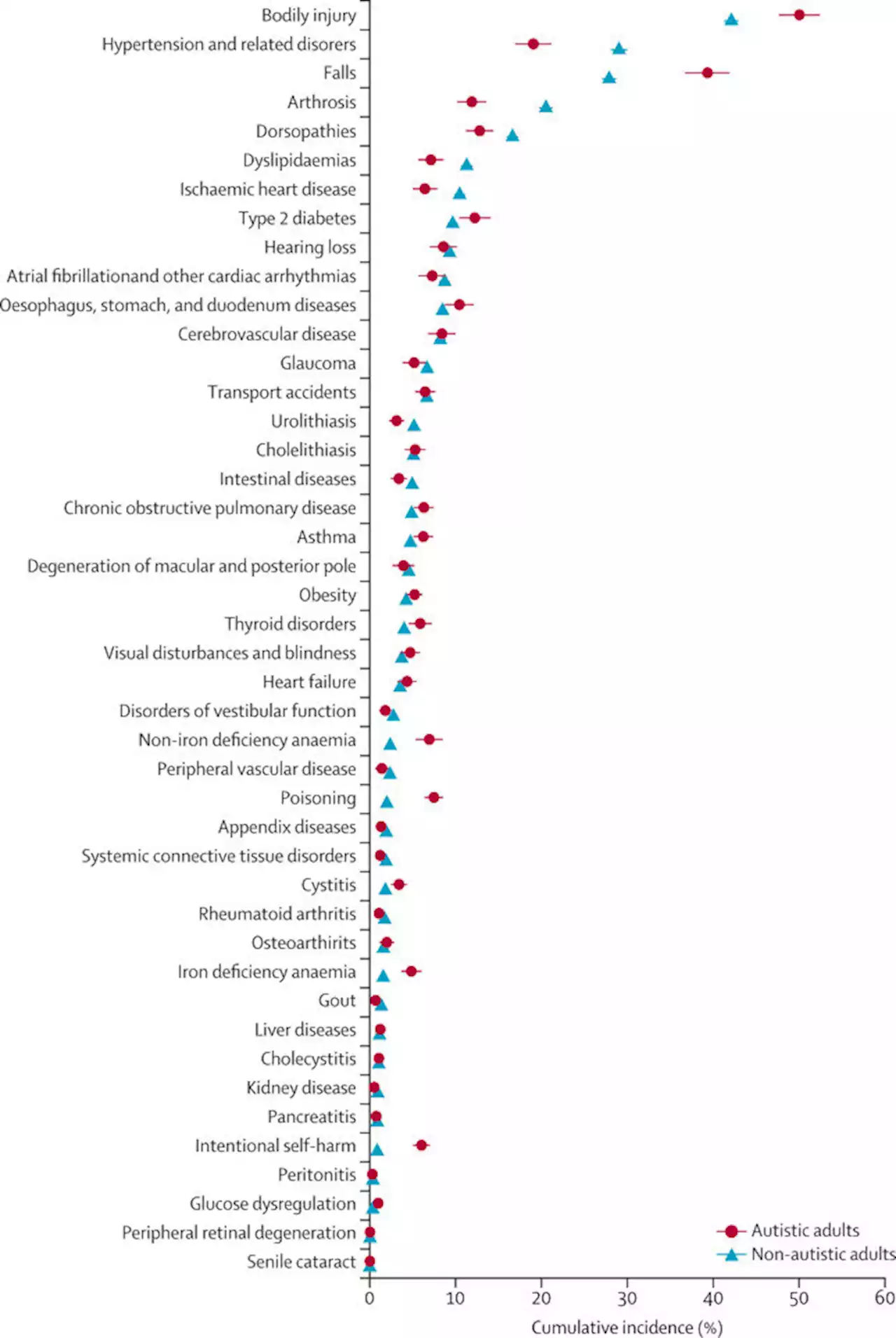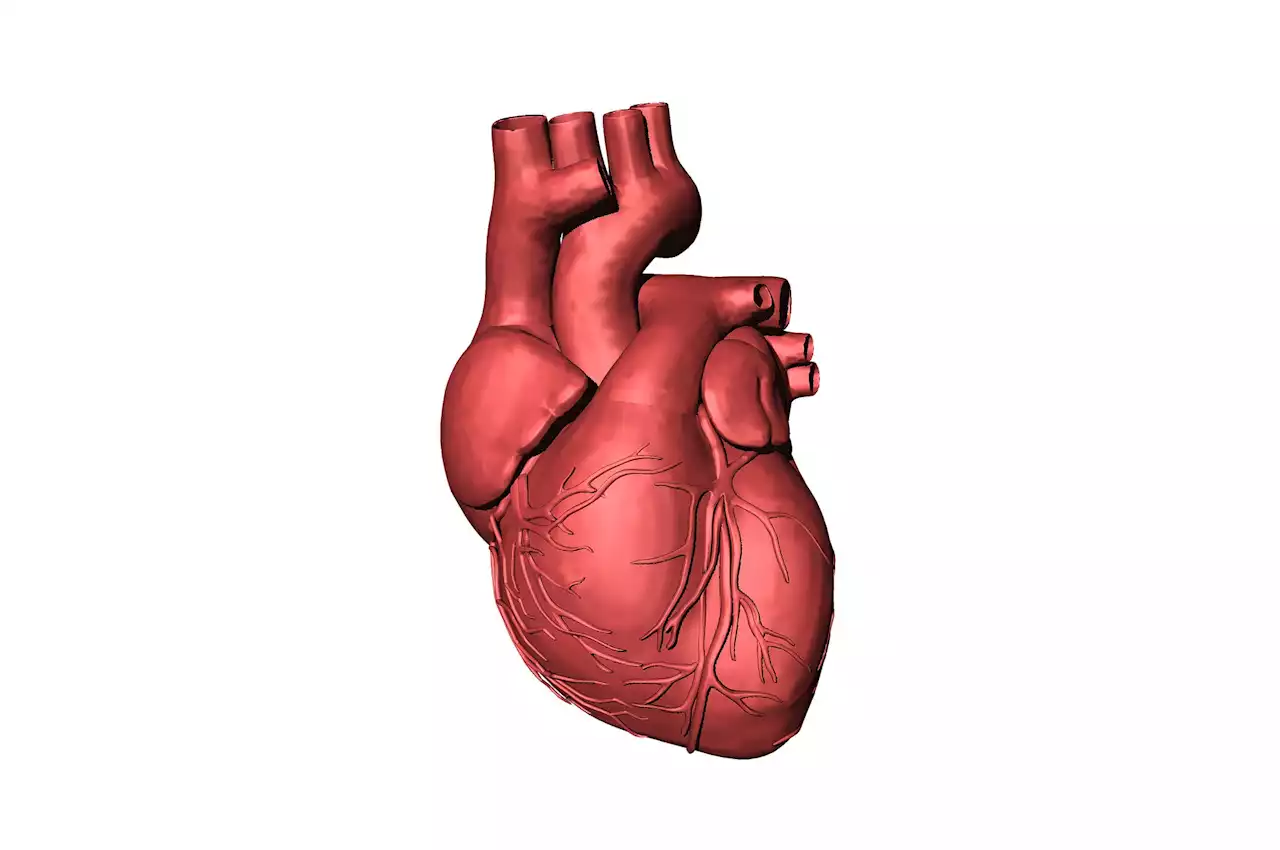Wearabledevices may improve cardiachealth, but adoption is low among those with CVD risk, study finds jamanetworkopen
We included all 9303 adult participants from HINTS 2019 and 2020. We identified individuals with CVD and CVD risk factors based on the survey questionnaire.
We defined obesity as a body mass index of at least 30 and cigarette smoking as currently smoking every day or on some days.The primary outcome of the study was the proportion of participants who reported using wearable devices to monitor their activity and health over the preceding 12 months. We evaluated national estimates of these proportions across CVD risk groups and across key demographic and socioeconomic subgroups.
In exploratory analyses, we assessed individual features associated with wearable device use among those with CVD or CVD risk factors. We sequentially evaluated the risk-adjusted use of wearable devices in adults with CVD or CVD risk factors using survey logistic regression models that accounted for demographic characteristics , demographic characteristics and CVD risk factors , and demographic characteristics, CVD risk factors, and socioeconomic status .
Compared with individuals without CVD or CVD risk factors, individuals with CVD and those at risk for CVD were significantly less likely to use a wearable device . However, the lower use of wearable devices in these groups was a function of demographic and socioeconomic differences between these groups, with no significant difference in their use in these populations after adjusting for these differences between individuals with CVD and those with CVD risk factors .
United Kingdom Latest News, United Kingdom Headlines
Similar News:You can also read news stories similar to this one that we have collected from other news sources.
 Male masturbation could increase chances of having offspring, study suggestsThe study also suggests masturbation may also reduce the risk of contracting sexually-transmitted infections.
Male masturbation could increase chances of having offspring, study suggestsThe study also suggests masturbation may also reduce the risk of contracting sexually-transmitted infections.
Read more »
 Autistic adults at substantial risk of injuries and age-related conditions, finds population-based studyOlder autistic adults have a significantly higher risk of injury, especially self-inflicted, and physical conditions such as type 2 diabetes, anemia, heart failure and COPD. This is according to a large-scale registry study from Karolinska Institutet published in The Lancet Healthy Longevity.
Autistic adults at substantial risk of injuries and age-related conditions, finds population-based studyOlder autistic adults have a significantly higher risk of injury, especially self-inflicted, and physical conditions such as type 2 diabetes, anemia, heart failure and COPD. This is according to a large-scale registry study from Karolinska Institutet published in The Lancet Healthy Longevity.
Read more »
 Mice study shows middle-brain region prompts females to kill or care for their youngA middle-brain region tied to the control of emotions likely prompts females to kill their young, a new study in mice shows. With the region also present in humans, the study authors say the findings could play a similar role in better understanding infanticide by women.
Mice study shows middle-brain region prompts females to kill or care for their youngA middle-brain region tied to the control of emotions likely prompts females to kill their young, a new study in mice shows. With the region also present in humans, the study authors say the findings could play a similar role in better understanding infanticide by women.
Read more »
 Study finds school-based counseling program reduces PTSD symptoms among adolescent girlsThe University of Chicago Education Lab released a new study June 7 that found school-based group counseling programs can significantly reduce PTSD, anxiety, and depression among Black and Latina girls. The study, which evaluated the Working on Womanhood ('WOW') program, a program developed by and for Black and Latina women and girls through the non-profit organization Youth Guidance, comes as girls nationwide experience significant trauma compounded by the pandemic.
Study finds school-based counseling program reduces PTSD symptoms among adolescent girlsThe University of Chicago Education Lab released a new study June 7 that found school-based group counseling programs can significantly reduce PTSD, anxiety, and depression among Black and Latina girls. The study, which evaluated the Working on Womanhood ('WOW') program, a program developed by and for Black and Latina women and girls through the non-profit organization Youth Guidance, comes as girls nationwide experience significant trauma compounded by the pandemic.
Read more »
 Devastating heart condition can be reversed, study shows for the first timeThree men who had heart failure caused by the build-up of sticky, toxic proteins are now free of symptoms after their condition spontaneously reversed in an unprecedented case described by a team at UCL (University College London) and the Royal Free Hospital.
Devastating heart condition can be reversed, study shows for the first timeThree men who had heart failure caused by the build-up of sticky, toxic proteins are now free of symptoms after their condition spontaneously reversed in an unprecedented case described by a team at UCL (University College London) and the Royal Free Hospital.
Read more »